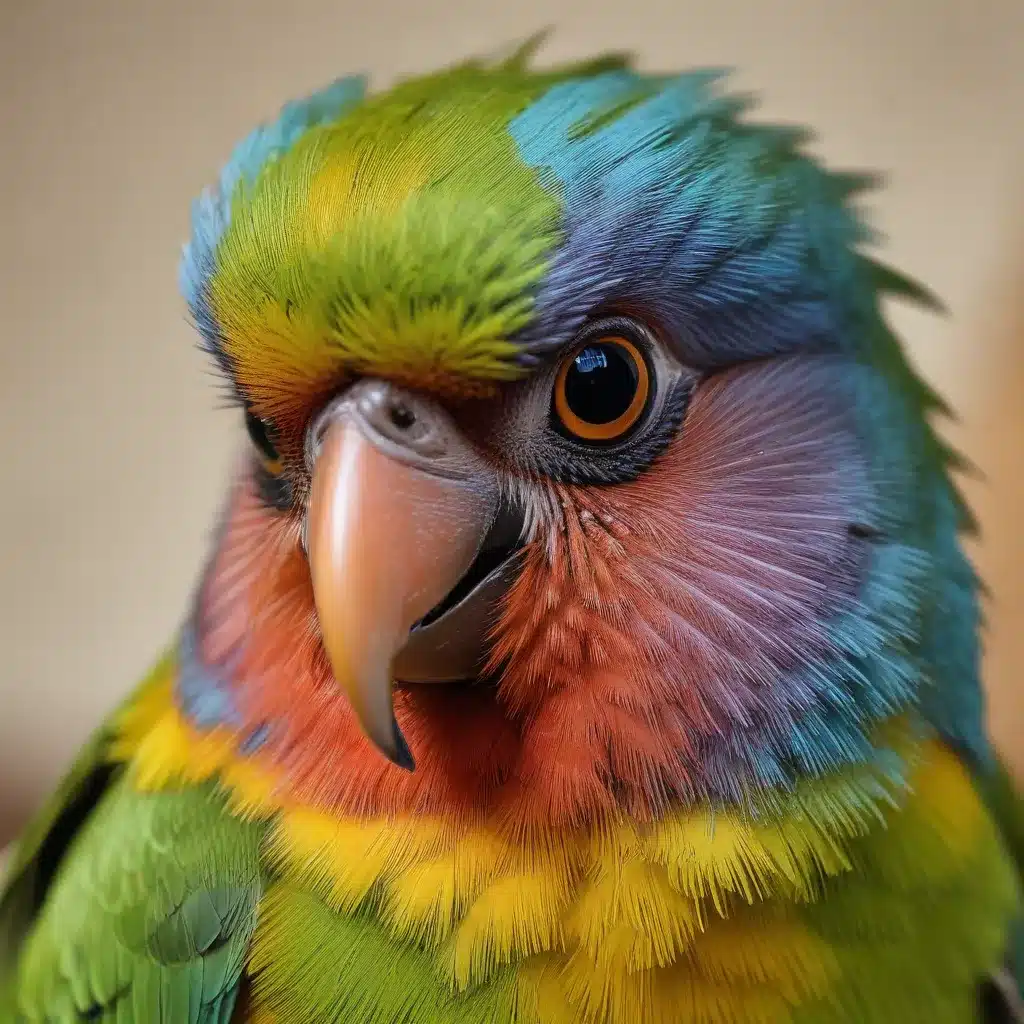
Avian Companions
Birds are extraordinary creatures that captivate us with their vibrant colors, enchanting songs, and endearing personalities. Inviting an exotic bird into our homes opens the door to a world of unique companionship, where we become part of their intricate flock and witness the incredible depth of their emotional and cognitive abilities. However, this journey of avian ownership is not without its challenges, as it requires a delicate balance of understanding, patience, and a lifetime commitment.
Bird Species and Care
The diversity of exotic bird species is truly astounding, each with its own set of specialized needs, behaviors, and care requirements. From the regal macaws to the playful conures, the melodic canaries to the affectionate cockatiels, the breadth of avian companions available can seem overwhelming. As experienced avian caretakers, we must approach the selection of a bird species with a deep understanding of their unique traits and the ability to provide a nurturing environment that caters to their specific needs.
Exotic birds, unlike their domesticated counterparts, have intricate dietary requirements that must be meticulously met. Their nutritional needs go far beyond a simple seed mix, encompassing a carefully curated blend of fresh fruits, vegetables, and specialized pellets or formulas. Failure to address these dietary needs can lead to serious health issues, underscoring the importance of research and consultation with avian veterinarians to ensure the well-being of our feathered friends.
Emotional Aspects of Bird Ownership
At the heart of the avian companion experience lies the profound bond that develops between a bird and its human caregiver. These intelligent creatures possess a remarkable capacity for emotional expression and social interaction, forging deep connections that transcend the typical pet-owner dynamic. As we immerse ourselves in the world of our avian companions, we become part of their flock, earning their trust and affection through dedicated care and nurturing.
However, this emotional bond can also present unique challenges, as birds are remarkably sensitive creatures. They can be easily stressed by changes in their environment, sudden disruptions in their routine, or perceived threats to their safety. Addressing these behavioral challenges requires a keen understanding of avian body language and the implementation of positive reinforcement training techniques, enabling us to create a harmonious and stress-free living environment for our feathered friends.
Aviary Design and Setup
Crafting the perfect habitat for an exotic bird is an art form in itself, as the physical environment plays a crucial role in their overall well-being and enrichment. Appropriate enclosure size is a primary consideration, as birds require ample space to spread their wings, engage in natural behaviors, and maintain their physical and mental health.
Equally important is the incorporation of diverse enrichment elements, such as perches, toys, and foraging opportunities. These features not only stimulate the bird’s innate curiosity and problem-solving abilities but also help prevent the development of destructive or self-mutilating behaviors. By designing a captivating and stimulating aviary, we can foster a sense of security and fulfillment within our avian companions.
Preventative veterinary care is another essential aspect of responsible bird ownership. Routine check-ups, vaccinations, and proactive monitoring for common avian illnesses are crucial to maintaining the long-term health and well-being of our feathered companions. Familiarizing ourselves with the early signs of potential health issues, such as changes in appetite, feather condition, or behavior, empowers us to respond promptly and seek professional guidance when needed.
Behavioral Training and Socialization
Effective training and socialization are the cornerstones of a harmonious relationship between a bird and its human caregiver. By employing positive reinforcement techniques, we can cultivate a foundation of trust and cooperation, enabling our avian friends to thrive in their new environment.
Behavioral training not only addresses unwanted behaviors but also provides mental stimulation and a sense of accomplishment for our feathered companions. Through the careful introduction of simple commands and the reinforcement of desired actions, we can shape their conduct, fostering a cooperative and well-adjusted bird.
Equally crucial is the process of socialization, where we carefully introduce our birds to new environments, people, and experiences. This gradual acclimation helps to build their confidence and reduces the risk of stress-induced behaviors, ensuring a smooth integration into our homes and lives.
Responsible Bird Ownership
Welcoming an exotic bird into our lives is a decision that carries significant legal and ethical considerations. Species-specific regulations, such as permitting requirements or restrictions on certain breeds, must be thoroughly researched and respected to ensure compliance and the well-being of our avian companions.
Ethical acquisition and responsible rehoming practices are also paramount. Responsible bird owners should prioritize reputable breeders or rescue organizations, avoiding impulse purchases or questionable sources that may contribute to the exploitation of these magnificent creatures.
The lifelong commitment inherent in exotic bird ownership is perhaps the most significant factor to consider. Many bird species can live for decades, with some even outliving their human caregivers. Preparing for the future, both in terms of financial resources and long-term care arrangements, is crucial to ensuring the continued well-being of our feathered friends.
Navigating the emotional journey of bird ownership is a testament to the depth of our bond with these remarkable creatures. By embracing their unique needs, fostering a nurturing environment, and committing to their lifelong care, we can cultivate a harmonious and fulfilling partnership that enriches our lives in ways we never could have imagined. As we embark on this avian adventure, let us approach it with empathy, dedication, and a reverence for the incredible diversity and emotional intelligence of our feathered companions.


